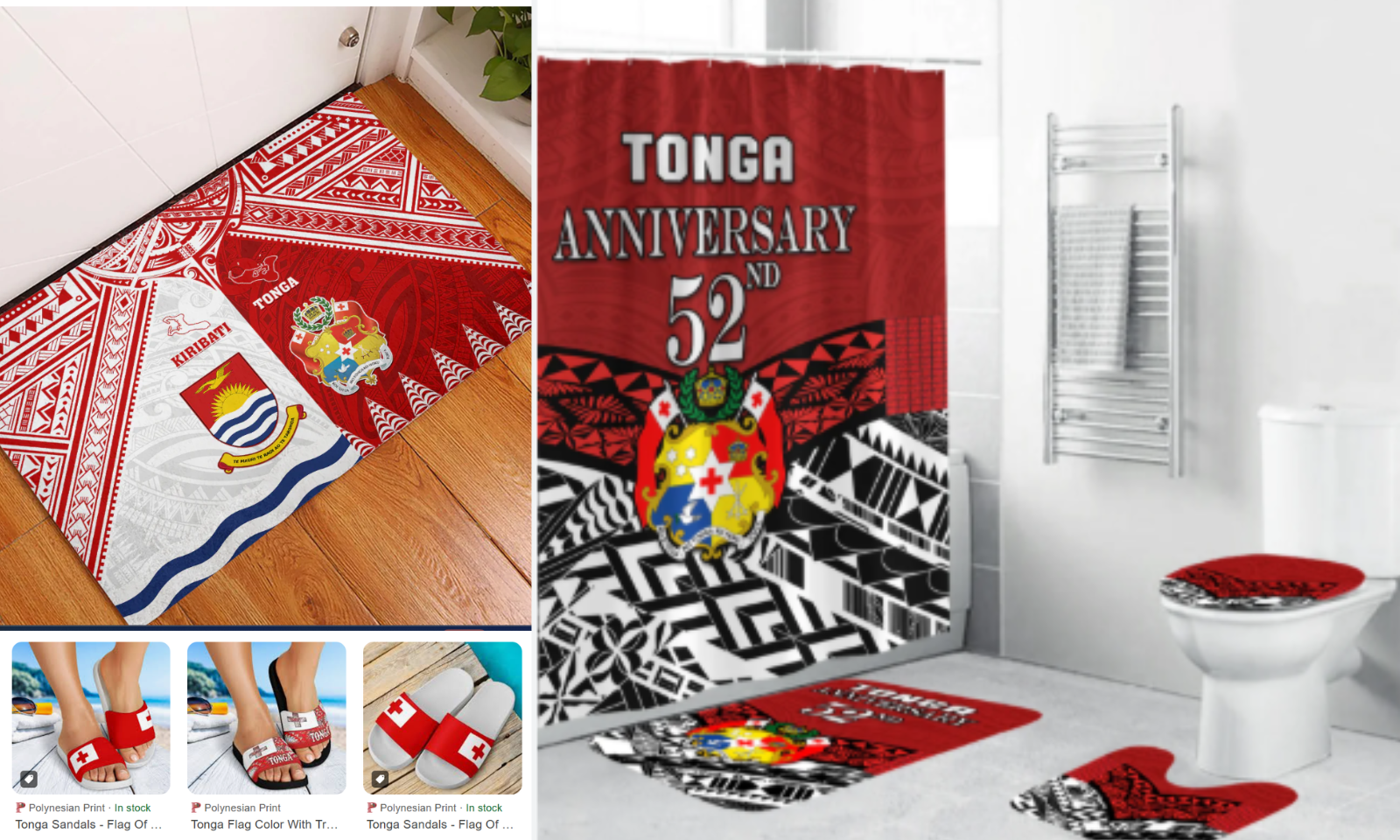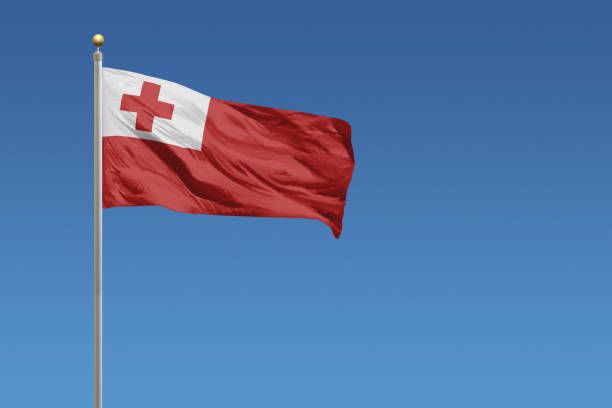

Hainoame Fulivai has launched a petition to protect how Tonga's national flag can be portrayed on commercial products.
Photo/Supplied
Tongan community demands respect for use of national flag
Elders describe the commercial exploitation as stripping away pride and mana, sparking a global petition for change.




A.R.T sets new Pacific music pace with ‘First Thursday’ releases



Moana Pasifika end Lautoka curse to win 'Battle of the Pacific'


A.R.T sets new Pacific music pace with ‘First Thursday’ releases

A Tongan community group is calling for stronger protections for the national flag after elders raised their concerns about its use on items like jandals (flip-flops) and bathroom products.
Hainoame Fulivai, founder of the Tapa Talanoa Collective, says the issue was raised during a women’s workshop focused on cultural heritage.
“Their feelings of being hurt and shocked to see the Tongan flag being sold or printed on items such as jandals or flip flops being sold in Otāhuhu,” she says.
“It’s disrespectful. The elders were describing their deep sense of pride and their mana being stripped, hurt, exploited and exposed, and I feel the same way.
Fulivai says seeing the flag on inappropriate items is deeply offensive.
“I was raised to honour being Tongan… the flag represents the ancestors, the faith and the pride of parents, grandparents that carried that with them when they came to New Zealand,” she says.

Products online feature the Tongan flag used on a doormat, a toilet seat cover, and footwear. Image/Supplied
“It's not about making money, but it is about maintaining that mana that has been carried and inherited by all of us.”
After conducting further research, Fulivai discovered that the products are being sold both locally and internationally.
“It shocked me, the magnitude of the challenge and the national flag being used in a derogatory way for the benefit of profit,” she says.
“I knew that there was no way that we could walk away from it, and that was what the elders had called for.”
In response, Fulivai has launched a petition urging Tongans around the world to support the campaign.
The petition also calls on the Tongan government to amend the Copyright Act and the Tonga Royal Arms and Flag Act, as well as to strengthen licensing laws, penalties, and public awareness.
“The flag is something that recognises Tonga on an international scale… It's about sovereignty, indigeneity and for all of us Tongans abroad or even in Tonga. It's about identity, dignity and pride,” she says.
Legal challenges
The Tongan flag, featuring a red cross in the left corner, was adopted in 1875, and the constitution stipulates that it cannot be changed.
Alex Sims, a commercial law professor at the University of Auckland Business School, says relying on copyright laws may not be effective, as they usually require a living artist or have a defined expiry period, similar to the protections of the Aboriginal flag. She suggests looking at overseas models for guidance.
“In South Africa, they've got the Merchandise Marks Act of 1941, and it still applies even though it's old. Basically, no person may use a mark or trademark that consists of or contains a national flag without authorisation from the competent authority.
“Canada has also got it for the Canadian national flag under its Trademarks Act, so it's a registered trademark.”
Sims says any efforts to protect the flag would need to start in Tonga’s parliament, but warns that enforcing these decisions outside Tonga will be challenging.
“The big issue is when you've got someone overseas using it, and the country's laws really only extend within that country. Overseas countries don't tend to protect other countries' flags.”

The Tongan flag was adopted in 1875. Photo/File
Community response
Fulivai says support for the petition has been mixed and stresses the importance of Tongan community members rallying behind their elders.
“They shouldn't have to beg us to protect who we are. It's about calling on all of us to do the right thing, support what matters and protect us for the future,” she says.
“The saddening thing is… people only really take action if there's some sort of incentive behind it. The action that we're calling for is about protecting identity. There's no cost to that, but purely it's the right and ethical thing to do.”
Sims says consumers hold the most influence in the matter.
“Boycott these things and don't buy them. Because you know that they're not being authorised, they're on some tacky cheap thing, and that does devalue the national flag.”